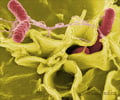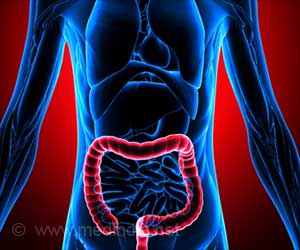British scientists have, for the first time, discovered that the food oisoning bug Salmonella has an affiliation for glucose-a vulnerability that could actually provide new way to
It has been found that the food poisoning bug Salmonella, has an affiliation for glucose. This vulnerability, British scientists believe, could provide a new way to vaccinate against it.
They say that the discovery of Salmonella's sweet tooth may also lead to vaccine strains to rotect against other disease-causing bacteria, including superbugs."This is the first time that anyone has identified the nutrients that sustain Salmonella while it is nfecting a host's body," said Dr. Arthur Thompson from the Institute of Food Research.
During infection, Salmonella bacteria immune cells engulf them in a bid to destroy them.
But the bacteria instead have a tendency to multiply, for which they must acquire nutrients.
Focussing their study on glycolysis, the process by which sugars are broken down to create hemical energy, the researchers constructed Salmonella mutants unable to transport glucose nto the immune cells they occupy and unable to use glucose as food.
The mutant strains lost their ability to replicate within immune cells, which made them harmless
Advertisement
The mutant strains still stimulate the immune system, and the scientists have filed patents on hem, which could be used to develop vaccines to protect people and animals against poisoning y fully virulent Salmonella.
Advertisement
The harmless strains could also be used as vaccine vectors.
Source-ANI
TAN













